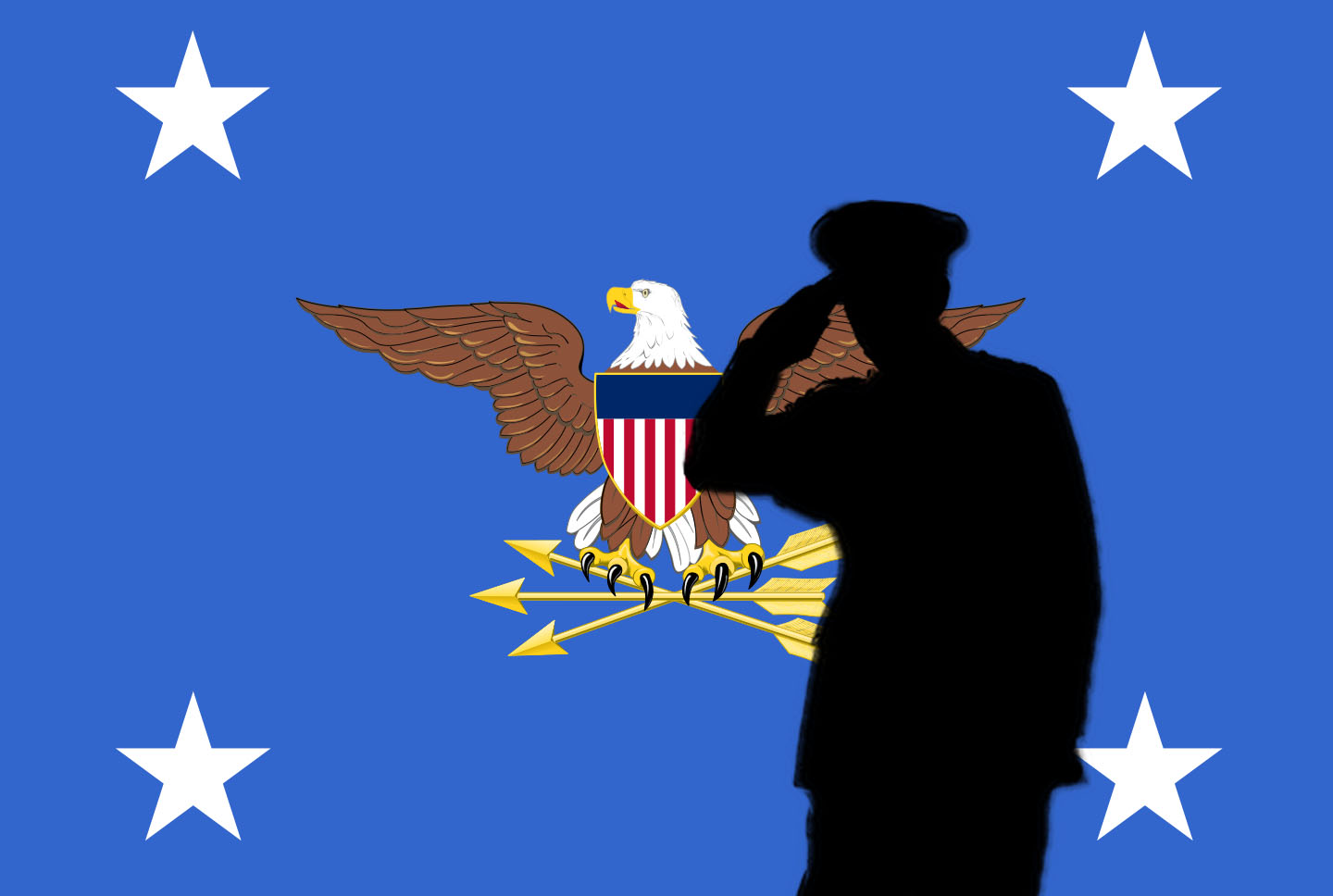
It might seem natural that retired flag officers would be considered for [Secretary of Defense]. Nonetheless, the U.S. tradition of civilian control is strong
Flag officers are esteemed members of American society, both inside and outside the military. By and large, they exhibit the best qualities of leadership and character the nation has to offer. They also have decades of experience gained through their military service; in times of peace, conflict, and national crisis, they have proven themselves in varied contexts. So, when the commander-in-chief and president of the United States calls upon retired flag officers to continue serving as high-ranking civilians, it reflects well on the officers and those who served under them. Their effectiveness and success are determined by the relationships they develop and sustain with civilian leaders. Importantly, the character of their service informs the study of civil-military relations and has implications for the profession of arms.
A particularly great honor is bestowed on those called upon to be Secretary of Defense. It might seem natural that retired flag officers would be considered for that position; after all, they have demonstrated both relevant expertise and willingness to defer to elected officials. Nonetheless, the U.S. tradition of civilian control is strong. The National Security Act of 1947 emplaced a cooling-off period of ten years between commissioned active duty service and appointment to be Secretary of Defense. The current Title 10 U.S. Code specifies a separation of seven years. Though more than half of the secretaries of defense have served in the military—whether in the active or reserve components—most were not career officers.
Thus, only two general officers have returned to government to serve as Secretary of Defense, Army General George C. Marshall and Marine Corps General James N. Mattis. Both Marshall and Mattis received congressional waivers, after which they were confirmed by the Senate. However, in approving their appointments, Congress reaffirmed the law’s intent. The 1950 legislation, passed specifically for Marshall to allow his retention of the rank of General of the Army, conveyed this quite directly. It said, “It is hereby expressed as the intent of the Congress that the authority granted by this Act is not to be construed as approval by the Congress of continuing appointments of military men to the office of Secretary of Defense in the future.” This statement of congressional intent begs the question, is having a military officer serve later as Secretary of Defense a good or bad thing? Examining the tenures of Marshall and Mattis may offer some insights.
The towering legacy of Marshall has been established by numerous scholars who recount his multiple careers in service to the United States. By the time that President Harry Truman called upon Marshall to be the Secretary of Defense, several months after the North Korean invasion of the South, Marshall had already completed 45 years in uniform. He earned Winston Churchill’s acclaim as “the true organizer of victory”—and two years as Secretary of State, earning the Nobel Peace Prize for the “The Marshall Plan.” The weary Marshall initially agreed to serving only six months, but ended up spending an entire year at the Pentagon. He selflessly saw it as his duty to answer presidential calls to serve the nation.
Though highly respected by both Presidents Franklin Roosevelt and Harry Truman, it would be naïve to believe his relationships with civilian leaders were without conflict. Marshall was renowned for speaking his mind on strategic issues and felt a moral obligation to “speak truth to power” when it came to policy decisions. He disagreed on a number of occassions with the presidents he served. As both a general and as Secretary of State, he was against decisions to: (a) delay the invasion of Europe in 1942, (b) recognize the Jewish State in Palestine in 1948, and (c) desegregate the U.S. Armed Forces during World War II. He was also concerned about integration during Universal Military Training with its effect on military effectiveness. Nonetheless, his role was to provide best military advice to civilian leaders and then implement them. His fidelity in performing these duties under exceptionally difficulty conditions established Marshall’s reputation for integrity and trustworthiness; Roosevelt once stated that he could not “sleep at ease” with his most trusted military advisor outside of Washington.
Historian Mark Stoler noted that over the course of Marshall’s career, while scrupulously non-partisan, “Marshall was forced to realize, [it] did not mean that a soldier could avoid politicization. To the contrary, if war and politics were inseparable, so were soldiers, statesmen, and politicians.” Accordingly, Marshall unconditionally accepted the principle of military subordination to civilian control that extended to executive authority over his cabinet positions as secretary of state and defense, respectively. Scholar Gerald Pops observes, “Marshall respected the right of the president to make … key foreign policy decision[s] and understood his role to be the major foreign policy advisor to the president, not the decision maker. He saw his role as conveying to the president the professional advice of his department.”
It would be nearly seven decades after Marshall’s retirement before another former general officer would become Secretary of Defense. Mattis’s military career was as distinguished as that of Marshall. After three years as an enlisted Marine, Mattis served another thirty-eight years as an officer. He commanded combat units in Operations Desert Storm, Enduring Freedom, and Iraqi Freedom. His final assignment—leading U.S. Central Command—came to a premature end due to public and private disagreements with President Barrack Obama over how best to deal with Iran. Mattis retired in 2013, ending a long military career of speaking truth to power. In January 2017, his appointment by President Donald Trump to Secretary of Defense required a congressional waiver, which was approved by Senate vote of 98 to 1. When asked why he accepted the presidential appointment, Mattis replied, “You know, when a president of the United States asks you to do something—I don’t think it’s an old-fashioned school, I don’t think it’s old fashioned or anything. I don’t care if it’s a Republican or Democrat, we all have an obligation to serve. That’s all there is to it. And so you serve.”
Like Marshall, Mattis felt duty-bound to accept the call of service to the nation one more time. As Secretary of Defense, he was assiduously nonpartisan and did not express political ideology in public comments. It is clear that President Trump gained political capital by nominating the man he continually called “General” to be Secretary of Defense. During his confirmation hearing, Mattis said “I was not involved in the presidential campaign, and I was certainly not seeking a position in any new administration.” It was surprising to many to hear President Trump comment that he thought Mattis was “sort of a Democrat” during the October 2018 “60 Minutes” interview. The very public way that Mattis departed the Trump administration was also surprising.
To ‘serve at the pleasure of the President’ requires a clear understanding of roles and responsibilities
Unlike Marshall, Mattis seemed to be excluded from policy deliberations that had military components or at least military considerations. Over the past two years, news media reported that Mattis was caught unaware by several policy statements and tweets by President Trump: the ban on transgender people in the armed services, the suspension of wargames and training exercises with South Korea, and most recently the withdrawal of U.S. troops in the fight against the Islamic State in Iraq and Syria (ISIS), as well as force reductions in Afghanistan. Aside from the lack of consultation on key security issues—itself a crippling handicap for a Secretary of Defense—these decisions clashed with the principles contained in Mattis’s National Defense Strategy 2018, which emphasized the importance of alliances, partnerships, and coalitions in securing U.S. interests. Mattis had lost the trust of the President, then access, and thereby influence. With the evident lack of alignment in views and beliefs, it was appropriate for him to tender his letter of resignation. Mattis recognized that he could not effectively serve as “the principal assistant to the President in all matters relating to the Department of Defense” if not included in or consulted on major national security policy decisions.
In examining the service of Marshall and Mattis, it is clear that relationships with their respective presidents directly affected their effectiveness as military advisors. There are tensions inherent to the roles and values guiding the behavior of these senior officials. The principles of selfless service and integrity, as well as a worldview that values alliances, persisted for both general officers beyond retirement and continued in their civilian position as secretary of defense. Consider the following tensions with enduring implications for civil-military relations:
Complement, not compensate. As strategic leaders, presidents have the authority and responsibility to build their national security team. Members of that team should bring complementary experience, knowledge, skills, and talents to address national security issues. Military officers offer their professional expertise to inform the policymaking process and provide decision makers with their best military advice. As a cabinet member, the Secretary of Defense helps shape policy that is ultimately put forth by the President as chief of the executive branch with oversight from Congress. It is dysfunctional and undermines the authority of the president to presume that military officers (active or retired) are to compensate for the lack of experience, knowledge, and judgment of the commander-in-chief. Retired general officers in high-level appointed positions being touted as “adults in the room” is not supportive of effective civil-military relations.
The credibility of senior retired officers like Marshall and Mattis in their engagements with Congress and the American people is important as they avoid partisan debates in the political realm. Commensurately, it is critical for presidents to build their team of trusted national security professionals. As important is that a secretary of defense does not get ahead of the president on major defense policy decisions. For Marshall, it was deferring to President Truman on the relief of General Douglas MacArthur as commanding general during the Korean War. For Mattis, his private advice to President Trump was viewed as appropriately influencing U.S. policy about enhanced interrogation and torture.
Subordinate, not supplant. Embedded in the culture of our U.S. profession of arms is the principle of military subordination to civilian control. Uniformed senior officers are to support senior elected and appointed officials. A Secretary of Defense may naturally advocate for military assessments of national security issues. Accordingly, military advice is offered, assessed, and then acted upon (or not) at the discretion of our civilian leaders. It should be clear that there is, as political scientist Eliot Cohen coined, an “unequal dialogue.” Military considerations should be deferential to national strategic and political assessments by civilian political leaders. In coordination with other instruments of national power (diplomacy, information, and economic), the goal is to develop strategies to serve national interests in the face of myriad challenges. Rarely should the military assessment supersede or supplant all other considerations. Like all cabinet officials, the Secretary of Defense is accountable to the President.
Diverse, not divergent. To navigate the dynamic and complex national security environment requires diversity of perspectives that inform policy development and choice. Such diverse points of view should be shaped through thoughtful analysis by the body of national security professionals, which includes the secretary of defense. Once the strategic vision has been set by the president, it is the obligation of his national security team to align their efforts with that vision. Divergence in the methods (ways) and resources (means) of achieving strategic goals (ends) established by the vision is problematic at best.
President Roosevelt’s comment about Marshall while Army Chief of Staff should apply to contemporary retired flag officers serving in civilian positions.
I’m not always able to approve his [Marshall’s] recommendations and history may prove me wrong. But when I disapprove them, I don’t have to look over my shoulder to see…whether he’s going to the Capital, to lobby against me, or whether he’s going back to the War Department. I know he’s going back to the War Department, to give me the most loyal support of chief of staff that any President could wish.
In reflection, these observations and insights are applicable beyond the next cohort of senior military officers considered for high-level positions in government. To “serve at the pleasure of the President” requires a clear understanding of roles and responsibilities, grounding in personal and professional ethics, and a commitment to support the Chief Executive through inevitable battles of politics – such is the nature of our democracy.
Charles Allen is Professor of Leadership and Cultural Studies at the U.S. Army War College. The views expressed in this article are those of the author and do not necessarily reflect those of the U.S. Army War College, U.S. Army, or Department of Defense.
Images: Graphic of the Secretary of Defense flag from Wikimedia Commons (public domain); Silhouette of Marshall from photograph of George Marshall and Henry Arnold arriving at Winston Churchill’s residence during the Potsdam Conference, Germany, 23 Jul 1945, U.S. National Archives (public domain).
Image composed by Tom Galvin





Thanks for a fascinating comparison. One tiny additional point–neither General Marshall nor General Mattis were service academy graduates. I don’t know if that makes any difference or not. Service academies, of course, have produced several presidents (Grant, Eisenhower, Carter (Jefferson Davis if we are being comprehensive)).
It is hard to equate the service of Gen Mattis to that of Geo Catlett Marshall based solely on the commands held, the challenges faced, the shear magnitude of their comparative service, and the quality of their outcomes.
Let’s be clear. Gen Marshall stood up an enormous military force from fewer than 200,000 to more than 16,000,000 total served and fought a two theater war while dealing with the advent of nuclear weapons and upheaval on almost every continent.
In one of his first moves, he relieved and replaced a number of shopworn, tired division commanders and was an extraordinary talent spotter in picking division, corps, army, and army group commanders — a feat never matched in the history of warfare.
The building of the American war machine by Gen Marshall was one of the greatest feats of organization and creation in the history of mankind. It ranks with the Manhattan Project in complexity and outcome.
Gen Mattis oversaw a small portion of a very small USMC and a command that never had more than 100,000 combatants at any time when he was the Centcom Commander.
There is a scale issue of gargantuan proportions.
The breadth and depth of Marshall’s service is beyond the pale — Chief Warrior, Architect of Victory, Ambassador to China, Sec Def, Sec State at a time when the Iron Curtain came down and the US was on the precipice of a World War III.
Churchill himself saw Marshall for the leader he was.
Gen Mattis was a very political general, not something he invented, but something the general officer corps has done to itself. His resignation was a political statement meant for public consumption and betrayed a degree of theatricality not warranted by the situation.
From the perspective of scale, magnitude of duties, outcomes, political considerations — Gen Mattis could not hold Gen Marshall’s jock.
I should reveal I am a VMI grad and have studied the career of our most illustrious graduate with some passion. There will never be another Gen Geo Catlett Marshall, a very good “C” student from VMI.
VMI has produced some great Marines. Gen Mattis is an excellent leader. He is not, however, in the same class as Gen Marshall based on any objective measure.
I know Jim Mattis well as a respected contemporary and a close friend. The moves also followed the resignations of multiple senior officials in the Defense Department.
I know Jim Mattis well as a respected contemporary and a close friend. The moves also followed the resignations of multiple senior officials in the Defense Department.